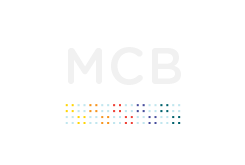Undergraduate Courses
MCB 493: Special Topics Mol Cell Biol
| Section | Type | Times | Days | Location | Instructor |
|---|---|---|---|---|---|
| CPP | LCD | 02:00 PM - 02:50 PM | MWF | 2200 Sidney Lu Mech Engr Bldg | Bolton, E |
| This course examines how abnormalities that occur at the molecular and cellular level manifest as pathologies affecting the onset and progression of various forms of cancer. It also focuses on the pathophysiology of common human cancers and the genetic and environmental factors that influence malignant invasion and metastasis. The involvement of these biological factors in cancer diagnosis, prevention, and management will be discussed throughout the course integrating basic science and clinical aspects central to oncology. This section of this course will count toward the 15 advanced credit hours of Advanced MCB Courses in the MCB undergraduate degree program. | |||||
| FMO | LCD | 12:00 PM - 01:20 PM | TR | 7 Burrill Hall | Zhao, B |
| This course introduces the principles and applications of functional multiomics, an emerging field that integrates genomics, transcriptomics, proteomics, and metabolomics data to elucidate the complex relationships within biological systems. Students will learn cutting-edge techniques for data integration, analysis, and interpretation, enabling them to uncover functional insights and gain a holistic understanding of biological networks. Through hands-on practical sessions, students will work with real multiomics datasets, collaborate on research projects, and develop skills in bioinformatics tools and data visualization techniques. This section of this course will count toward the 15 advanced credit hours of Advanced MCB Courses in the MCB undergraduate degree program. Prerequisites: MCB 250, MCB 317 Genetics and Genomics. Students are strongly encouraged to familiarize themselves with RStudio and the basics of programming in R prior to taking this class. | |||||
| MTB | LCD | 03:00 PM - 03:50 PM | MWF | 5 Burrill Hall | Zhang, Y |
| Modern biotechnology is a fast-evolving field that drives advancements in research, industry, medicine, and other areas. This course provides an in-depth exploration of contemporary approaches, emphasizing the principles and research applications of cutting-edge technologies, including genetic engineering, CRISPR, DNA sequencing, functional genomics, and structural biology. Students will gain hands-on experience with these techniques and bioinformatics tools. Through dry-lab practices and group projects, students will develop skills in research project design, data analysis, and interpretation. his section of this course will count toward the 15 advanced credit hours of Advanced MCB Courses in the MCB undergraduate degree program. | |||||
| NMI | LCD | 03:00 PM - 04:20 PM | TR | 2055 Sidney Lu Mech Engr Bldg | Sweeney, P |
| This course will provide an overview of the neural circuitry regulating emotion and discuss how this circuitry may be disrupted in psychiatric disorders. Diseases covered in class will include anxiety disorders, depression, fear disorders, and eating disorders. Lectures and readings will cover the physiology, symptomology, and current treatment strategies for treating mental illness, and the most current biological understanding of the neural circuit mechanisms involved in these disorders. A particular emphasis will be placed on the use of rodent animal models for dissecting the neural causes of physiological and pathological emotion regulation, and understanding how changes in cellular and molecular pathways impact the neural circuitry regulating emotion. This section of this course will count toward the 15 advanced credit hours of Advanced MCB Courses in the MCB undergraduate degree program. Prerequisite(s): MCB 314: Introductory Neuroscience, MCB 461: Cell and Molecular Neuroscience (recommended) | |||||
| NOS | LCD | 02:00 PM - 03:20 PM | TR | 7 Burrill Hall | Auerbach, B |
| This course will cover the major functions of the sensory systems and the mechanisms of sensation and perception at the molecular, cellular, and systems levels. In addition, it considers the physiological basis of sensory system development, plasticity, and disease based upon human clinical data and research in animal models. Prerequisite: MCB 314 This section of this course will count toward the 15 advanced credit hours of Advanced MCB Courses in the MCB undergraduate degree program. | |||||
| REM | LAB | 02:00 PM - 03:50 PM | TWR | 216 Noyes Laboratory | Boyle, T; Hatoum, A |
| Research Experience in Microbiology for students who haven’t had a chance to participate in authentic research yet. Prerequisite: MCB 251 or 253. This section of this course will count toward the 15 advanced credit hours of Advanced MCB Courses in the MCB undergraduate degree program. | |||||
| Description | Discussion of current topics of interest within the broad domain of molecular and cellular biology; seminar or lecture format. Topics vary. May be repeated to a maximum of 12 hours. Prerequisite: Junior standing and consent of instructor. |
|---|---|
| Note |
See sections for details; only some are approved as ADV MCB (lecture) Courses. CPP: Cancer Pathophysiology SP only; ADV MCB Course EPI: Epigenetics FA only; ADV MCB Course FMO: Functional Multi-omics SP only; ADV MCB Course MTB: Modern Technologies in Biological Research SP only; ADV MCB Course NMI: Neurobiology of Mental Illness SP only; ADV MCB Course NOS: Neurobiology of Senses SP only; ADV MCB Course PBC: Physical and Biological Chemistry FA only; ADV MCB Course REM: Research Experience in Microbiology SP only; NOT an ADV MCB Lab, is ADV MCB Course |
| Credit Hours | 1 to 4 hours |
| Syllabus | Course Syllabi |


